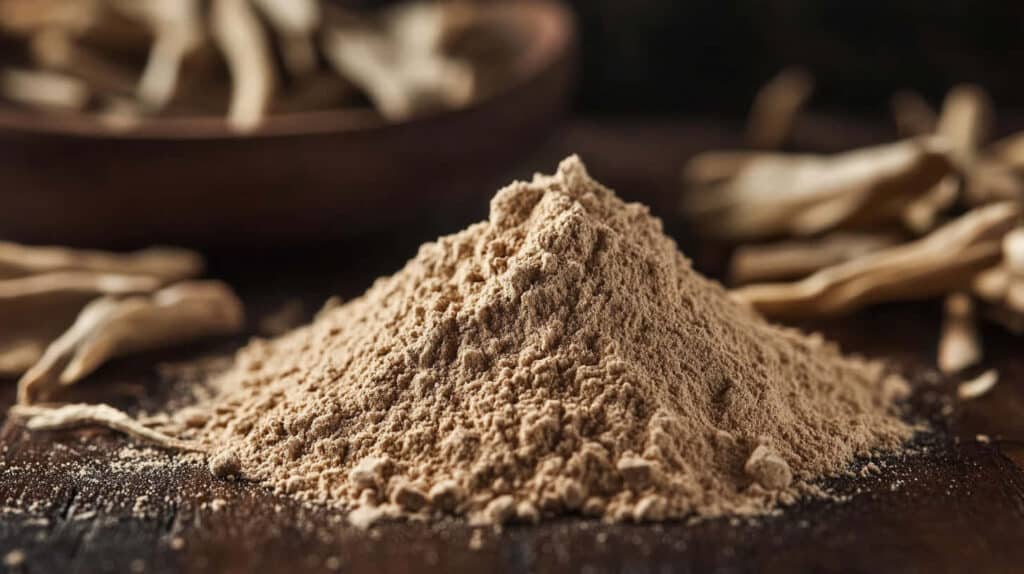Is Kava Addictive? Let’s Look At the Facts
Kava has been cherished for centuries for its calming effects and natural ability to ease stress. But is kava truly addictive? Let’s explore the facts to put your mind at ease.
What is Kava?
Kava, a tropical plant native to the South Pacific, comes in the form of heart-shaped leaves and knobby roots. The plant’s root is the key ingredient in creating this traditional beverage. Regularly consumed in certain Pacific Island cultures, it has gained popularity worldwide for its soothing properties.
Available as a fine powder, the dried and ground roots mix with water to form a drink known for its calming effects. Similar to coffee shops, Kava bars offer a variety of drinks ranging from traditional kava drinks to modern blends mixed with other flavors.

How Does Kava Affect the Body?
Kava, known scientifically as Piper methysticum, primarily affects the body through compounds called kavalactones. These compounds influence the central nervous system, altering levels of neurotransmitters in the brain.
Kavalactones bind to GABA receptors, just like certain anti-anxiety medications, producing a calming effect. This process can effectively reduce anxiousness and cause relaxation, which is why many are now turning to kava as a natural remedy.
Kava’s benefits extend beyond relaxation; users often experience muscle relaxation and improved sleep. The sedative effects also come without the cloudiness often associated with alcohol, allowing for clear-headed tranquility.
Is Kava an Opiate?
Kava is not classified as an opiate. Opiates, derived from the opium poppy, bind to opioid receptors in the brain to produce pain relief and euphoria. Kava works on GABA receptors, causing relaxation without inducing the same level of physical dependency. This difference shows that, unlike opiates, kava does not carry the same risks of addiction or withdrawal symptoms.

Answering The Question: Is Kava Addictive?
Unlike substances commonly associated with addiction, kava is made up of kavalactones. Kavalactone’s interactions with the brain are not as intense or habit-forming as those seen with substances like alcohol or opiates. While kava can promote relaxation and stress relief, evidence suggests that kava is not addictive.
Kava Withdrawal: What You Need to Know
For a substance to be considered truly addictive, it often leads to withdrawal symptoms when someone stops using it. In the case of kava, most users do not experience withdrawal effects. In rare cases, some people may notice mild fatigue or decreased social energy. Still, these symptoms are generally short-lived and much less severe than the withdrawals associated with addictive substances.
Ultimately, enjoying kava is more like indulging in your favorite coffee or tea ritual—it can become a relaxing habit, but it doesn’t create a dependency. The experience is often about appreciating the calming effect without cravings or compulsion to consume more. So, while kava can be a part of a balanced lifestyle, it will not take over your life.
How to Drink Kava Wisely and Responsibly
Firstly, consider dosage guidelines. While there is no one-size-fits-all prescription, starting with a small amount allows you to gauge your body’s response. A generally accepted dosage recommendation is 250 mg of Kavalactones. Observe your body’s reaction before indulging further.

Moderation is key. You should add breaks into your kava routine, as consuming kava more than three times per week can lead to increased tolerance. Adding these breaks can help you maintain the efficacy and strength of kava’s effects without having to consume a higher dosage.
Alcohol and Kava Don’t Mix
One vital thing to know before getting into kava is to steer clear of consuming alcohol along with kava to ensure you are not overwhelming your system. Alcohol and kava both metabolize in the liver and can exaggerate each other’s effects, potentially placing stress on your liver. Prioritize your well-being and choose one or the other, but never both.
FAQ
Kallava’s Premium Kava Products
Rest assured, kava isn’t addictive when enjoyed responsibly. With Kallava’s premium products, you can safely experience the natural relaxation and stress relief kava offers. Explore our range today and make kava a soothing addition to your wellness routine!






